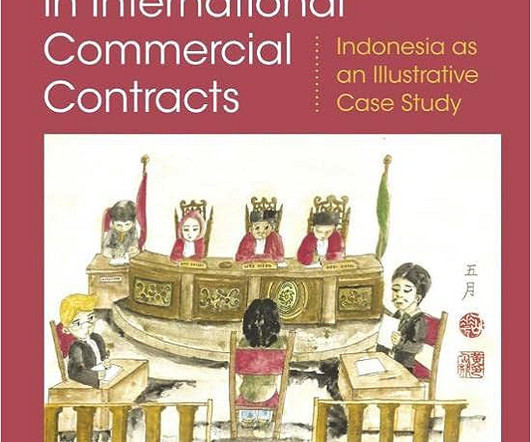The Chinese villages win a lawsuit in China to repatriate a Mummified Buddha Statue hold by a Dutch Collector —What Role has Private International Law Played?
Conflict of Laws
DECEMBER 12, 2020
Under the Civil Procedure Law of China (CPL), the general rule of territorial jurisdiction is that a civil action shall be brought in the People’s Court of the place in which the defendant is domiciled subject to various exceptions grouped together under the title of “special jurisdictions”. [9] 8] Id, at pp. De dr. int.













Let's personalize your content